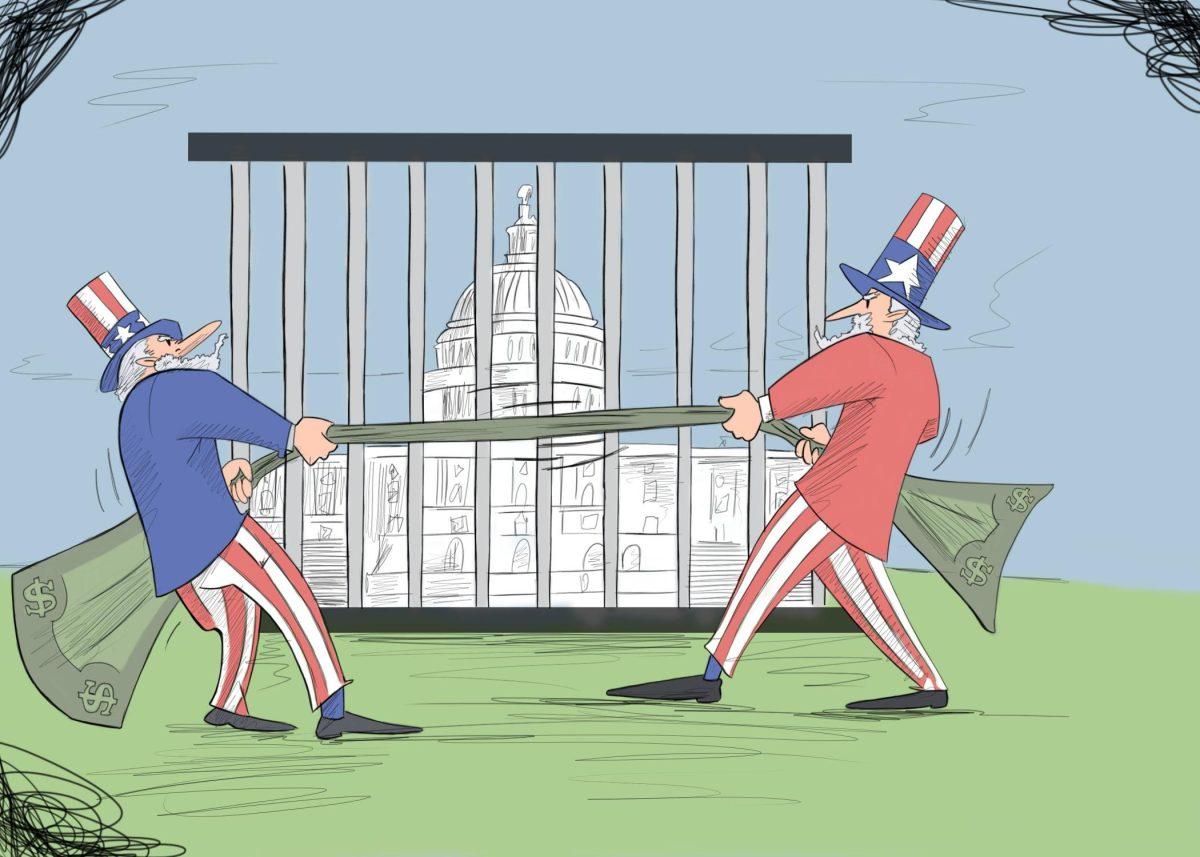Alan Gunnels was treated for cancer over two years ago and worries about missing a doctor’s appointment because the government is not paying him.
“I got to go to regular check-ups every six months now,” Gunnels said. “There’s situations like that. Health-wise, I have to do it.”
Gunnels is an air traffic controller at Louis Armstrong New Orleans International Airport and is one of the nearly 420,000 government employees forced to work and wait for the ongoing government shutdown to be over to receive their pay. Another 380,000 employees were sent home when it began with no guarantee of back-pay.
The government shutdown began on Dec. 22 after President Donald Trump refused to sign a spending bill that did not include $5.7 billion for a border wall. The shutdown became the longest in history when it reached its 22nd day on Jan. 13.
The shutdown reached its 32nd day on Tuesday. A potential compromise Trump offered on Jan. 19 would grant $5.7 billion for border security in exchange for a three-year extension of the DACA program, which protects illegal immigrants brought to the U.S. as children from deportation.
Historically, the government has usually shut down when the president vetoes a spending bill that involves funding for a controversial issue, or the House and Senate disagree so strongly about an issue on the budget they refuse to compromise.
Belinda Davis, associate professor of political science at the University, said government shutdowns vary in what services they disrupt, but usually, workers are split into non-essential and essential employees.
Non-essential workers, like Department of Commerce employees, are furloughed, meaning they are sent home and are not paid for those days once the shutdown is over, Davis said. Essential employees, such as border patrol agents, are still required to work, but they are not paid until the shutdown ends.
Gunnels has been an air traffic controller for 28 years. He said he and his colleagues were paid during previous shutdowns, but now he is feeling nervous.
“I’m just stuck kind of in this limbo until someone else decides for me what happens,” Gunnels said. “It’s an unsettling feeling.”
Gunnels said he cut back on some of his spending. He has not gone out to eat and has only bought groceries that his family truly needs, but he has no choice about other expenses like his children’s college tuition.
Federal employees forced to work have few options available to supplement their lost income.
Davis said workers could quit and find another job, but their contracts stipulate they must be at work when scheduled, even in a shutdown.
The government provided a letter explaining the situation that employees can show to creditors, but the decision to help still lies with those lenders, Davis said.
Mass communication sophomore Lauren Watson’s father works for the Department of Justice and is an essential employee. She said her family is more frustrated than anything, but they are lucky to be financially secure.
Watson said her father relates the shutdown to a business, saying if the company executives strongly disagreed over an issue, the business could not cease operations.
Many have offered help to federal workers, such as local restaurant The Ruby Slipper Cafe. Gunnels said his friends have supported him, and a group of air traffic controllers from Canada sent pizza to him and his colleagues.
The Ruby Slipper Cafe said in a Facebook post that it served over 3,000 meals to affected workers.
“The touching stories and powerful sense of community has affirmed our belief in helping our neighbor,” the post said.
The shutdown also affects another area of government that all Americans are familiar with — the Internal Revenue Service.
The IRS Lapse of Appropriations Contingency Plan states the IRS must process returns “to the extent necessary to protect Government property, which includes tax revenue, and maintain the integrity of the federal tax collection process …”
However, it remains unclear if the IRS will be able to carry out these services as quickly as it normally would because it may not retain enough employees to work. The employees also may not tolerate working for long periods without pay.
Gunnels said if the shutdown continues on, he will start looking into loan options. With Trump’s offer reportedly unlikely to pass in the Senate, he may have to.
And that means 800,000 workers continue on, sent home with no guarantee of back-pay or forced to work without pay until the shutdown is over. All they can do is wait.
*Editor’s Note: Lauren Watson is a former staff photographer for The Reveille.




